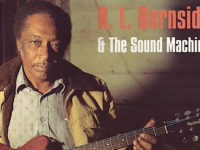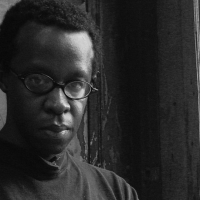Pianist Jan Luley has fashioned an album in Blues Gumbo: Down in Pianorleans with a lasting sense of place – of second-line parties, and swampy regret, and spicy passions – despite having studied piano not in the Big Easy but in Holland.
No matter. Listen as Luley reanimates the classic stoicism of Jelly Roll Morton’s old-time rumination “Buddy Bolden Blues,” exploring first the tune’s familiar theme and then moving outward into ever more winkingly amorous asides. Despite the song’s title, there isn’t a hint of darkness here; it’s all honeysuckle joy. That sets the stage nicely for Luley’s original “Muffuletta Shuffle,” which begins with a charging boogie-woogie cadence and never lets up, building in intensity toward a gospel-tinged epiphany as the pianist is joined by a slow-cooking Thomas L’Etienne on sax. Together, they cut through many of the clichés that bind New Orleans music, taking in the French Quarter fun but never becoming beholden to it.
W.C. Handy’s “St. Louis Blues,” for instance, then delivered with an impressive determination, something not necessarily hinted at within the chin-wagging festivities that came before. Luley approaches the song with an impressive strength of conviction, allowing silence to work as part of the song – even as he leads the listener across an episodic arc. He never pushes too hard, and never pulls with too much force, either. It’s a perfectly attenuated take. Luley’s “Rabbit Stew Boogie Woogie” then swings with an impish verve, while “Keep on Gwine” from Melvin Lastie, the last cover before another quartet of originals, is as in the pocket as anything on Blues Gumbo: Down in Pianorleans. Luley expertly blends the undulating convolutions of Professor Longhair with straight-forward, barrelhouse approach that any Bourbon Street house band would admire. In simultaneously recalling an old-time sensibility, even while hewing purposely toward an inviting accessibility,he makes the boldest reiteration yet of his goals here.
“Jay Al’Boogie,” as the title suggests, finds Luley rocking and (most certainly) rolling up and down the 88s, while “Creole Tears” possesses this deeply interesting quietude. “Olivia’s Oyster Dance” connects even more deeply with the region’s tradition of deft storytelling – sounding, even without words, like a narrative worth repeating – while the swinging “Larry’s Groove” allows Luley to employs a propulsive two-handed approach.
When he does return to more familiar cover-song environs, it’s with a gutsy take on Dr. John’s “Dorothy.” There is, of course, no more well known – or perhaps well regarded – current proselytizer of the New Orleans piano tradition than one Mac Rebennack. Luley could be forgiven for treading lightly here, for playing it safe. Instead, he bravely mines the song’s emotional depths, finding new shadings along the way. He then completely cuts loose on the volcanic “Hurricane Boogie Woogie,” sounding for all the world like a duo of performers. Yet, while it’s impressively propulsive, the tune doesn’t trade its fleet runs for inattentiveness. Instead, every moment, every trill, fits together as if written in advance. The song is a triumph of balance, right down to a final stunning solo. It’s as much about the conceptual and as it is eye-popping performance art.
Luley then makes another pass at the Morton songbook, with L’Etienne switching to clarinet, for a contemplative update of “Winin Boy Blues.” Luley’s original “Mississippi Lady” boasts all of the nostalgic romanticism of the best Allen Toussaint, while James Booker III’s “Pixie” stomps and sways with a simple delight. Finally, there’s a carefully calibrated take on Duke Ellington’s “Creole Love Call,” with Luley doubling on both piano and on a lonesome organ – the perfect summation of an album that was not just about the Crescent City’s knee-slapping tall tales but also about understanding this tradition’s deeper complexities.
[amazon_enhanced asin=”B00C9FG2S8″ container=”” container_class=”” price=”All” background_color=”FFFFFF” link_color=”000000″ text_color=”0000FF” /] [amazon_enhanced asin=”B000027XV3″ container=”” container_class=”” price=”All” background_color=”FFFFFF” link_color=”000000″ text_color=”0000FF” /] [amazon_enhanced asin=”B003PE3OXI” container=”” container_class=”” price=”All” background_color=”FFFFFF” link_color=”000000″ text_color=”0000FF” /] [amazon_enhanced asin=”B005F58NLI” container=”” container_class=”” price=”All” background_color=”FFFFFF” link_color=”000000″ text_color=”0000FF” /] [amazon_enhanced asin=”B0050LLBVQ” container=”” container_class=”” price=”All” background_color=”FFFFFF” link_color=”000000″ text_color=”0000FF” /]
- Nick DeRiso’s Best of 2015 (Rock + Pop): Death Cab for Cutie, Joe Jackson, Toto + Others - January 18, 2016
- Nick DeRiso’s Best of 2015 (Blues, Jazz + R&B): Boz Scaggs, Gavin Harrison, Alabama Shakes - January 10, 2016
- Nick DeRiso’s Best of 2015 (Reissues + Live): John Oates, Led Zeppelin, Yes, Faces + others - January 7, 2016




